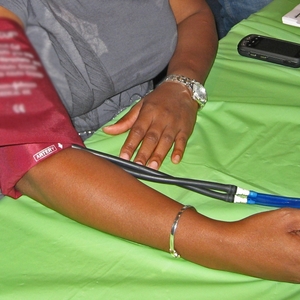MedicalResearch.com Interview with:
Tasleem J. Padamsee, PhD
Co-Leader C3-REACH -- Committed to Communities Collaborative: Research and Engagement to Advance beyond COVID to Health Equity
Principal Investigator
The Daughter Sister Mother Project: Empowering Women and their Healthcare Providers to Fight Familial Cancer
Lead Qualitative Investigator WOW Project: Washington & Ohio Workers Study
Assistant Professor
Division of Health Services Management & Policy, College of Public Health
Faculty Affiliate, James Comprehensive Cancer Center
The Ohio State University
MedicalResearch.com: What is the background for this study?
Response: This is a study about COVID-19 vaccine hesitancy in the United States. Although there has been a lot of discussion about vaccine hesitancy as a barrier to achieving high rates of COVID-19 vaccination, there have been few studies of changes in hesitancy - or how it might vary across groups. As COVID-19 vaccines were becoming available in the US there was a lot of discussion about worrisome rates of vaccine hesitancy, particularly among communities of color.
Our team suspected, however, that these high rates might be short-lived, and that Black Americans in particular might become willing to use COVID-19 vaccines after a short period of time - as they became reassured that they would be safe, effective, and protect communities.
(more…)
 Arman A. Shahriar
Medical Student, University of Minnesota Medical School Research
Consultant, HealthPartners Institute
Minneapolis, Minnesota
Arman A. Shahriar
Medical Student, University of Minnesota Medical School Research
Consultant, HealthPartners Institute
Minneapolis, Minnesota













 Johonniuss Chemweno
CEO of VIPStarNetwork
MedicalResearch.com: What is the mission of VIP StarNetwork?
Response: VIP StarNetwork’s mission is to expand access to healthcare services and information, especially in underserved and underprivileged communities. Our comprehensive group of health experts, leading physicians, and healthcare executives are working to create a meaningful and safe environment to ensure that patients have equitable and streamlined access to vaccines and other forms of care.
Johonniuss Chemweno
CEO of VIPStarNetwork
MedicalResearch.com: What is the mission of VIP StarNetwork?
Response: VIP StarNetwork’s mission is to expand access to healthcare services and information, especially in underserved and underprivileged communities. Our comprehensive group of health experts, leading physicians, and healthcare executives are working to create a meaningful and safe environment to ensure that patients have equitable and streamlined access to vaccines and other forms of care.














